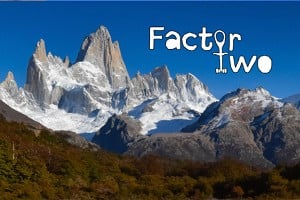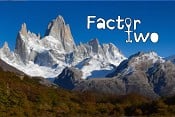
What's the most commonly used German word(s) for crag? Klippen apparently only applies to seacliffs, but Felsspitze would imply a summit / pointy feature. I'm thinking of the word for a cliff which could be / is climbed on but not necessarily so i.e. "the path goes underneath the crag over there".
crag = Felsen.
Jim Titt or cb294 would be best to give an other versions though.....
Also means rock in a more generic sense - bedrock, boulders etc.. Although you would (could) combine it with climbing (Klettern) to give Rock Climbing (Felsklettern) - and seemed to satisfy my German GCSE teacher FWIW...
Mauer or Wand means wall. Mauer might be more in the context of the wall of a room rather than a cliff but not certain about that. I would go with Wand.
Maybe Fels could be used like that but it also refers to the rocktype. Felswand?
> Maybe Fels could be used like that but it also refers to the rocktype. Felswand?
This is a prime example of why German is such a great language
Whichever you like, in the Franken you'll find wand, mauer, klippen and fels used at random.
Wand is far more generic afaik, Felsen more specific - but I dont think a native German speaker would have too much trouble understanding you if you used either.......
> Also means rock in a more generic sense - bedrock, boulders etc.. Although you would (could) combine it with climbing (Klettern) to give Rock Climbing (Felsklettern) - and seemed to satisfy my German GCSE teacher FWIW...
But was he a climber..........
She very much was not.
> ... so i.e. "the path goes underneath the crag over there".
"Der Weg/Steig/Pfad verläuft unterhalb der Felsen / der Felswand / der Wand dort drüben."
You would even put it slightly differently dependening on whether you want to convey that the path you are on will later pass below a crag visible in the distance, or you are pointing out some other path below that crag.
Climbing on crags is "Klettern", except in Saxony where they call it "Bergsteigen" (= mountaineering anywhere else). "Felsklettern" is OK, but normally reserved for the Alpine context (where there would be alternative styles).
Klippen is the generic word for sea cliffs, Mauer is often part of the name for wide, vertical crags. You would rarely use it for describing a generic crag.
CB
Fels/ Felsen.
> "Der Weg/Steig/Pfad verläuft unterhalb der Felsen / der Felswand / der Wand dort drüben."
Nice. I was wondering how you would phrase that so it didn't sound like the path literally went underneath the crag.
"Der Weg geht an/unter den Felsen lang/entlang" would be a slightly more informal version of the previous sentence. "An" would imply close contact, "unter" some vertical distance.
In contrast, "Der Weg geht unter den Felsen durch" implies a rock tunnel or at least an overhang with rock directly above your head.
"Fels" or "Felsen" (which can be either singular or plural) often fits, but there really is no German word with a 1:1 correspondence to "crag".
CB
Are there any sea cliffs in Germany? I'd always thought the North sea coast would be like east Anglia in the UK.
Luckily we've got the Baltic as well, 118m high on Rügen. Rubbish chalk though.
Thanks all, most appreciated
> Klippen is the generic word for sea cliffs, Mauer is often part of the name for wide, vertical crags. You would rarely use it for describing a generic crag.
> CB
Nur still there are some Klippen dar away from the sea. The Szudentenklippen in the Okertal in the Harz is the forst that comes to Mond but I Fell certain there are skme in Saxony as well.
Klettergarten???
Kraggenroksenkannichtklippenscheisseichbinoffenfukit.
How are the broken wrists doing Steve?
Klettergarten is used for climbed, mainly short rock.
> Nur still there are some Klippen dar away from the sea. The Szudentenklippen in the Okertal in the Harz is the forst that comes to Mond but I Fell certain there are skme in Saxony as well.
A great set of fat fingers! Looks like my typing if I cannot be arsed to proof read...
Sure, and I know some in the Alps and the Black Forest as well, but this is always part of a place name. You would not, as asked by the OP, say that the path runs alongs the bottom of the "Klippen" unless you were specifically referring to a sea cliff.
Klippen, Mauer, etc. can sometimes refer to bog standard crags or mountain faces in poetic/literaray language, but you would similarly never say let's climb this "Klippe" or "Mauer", it is always Fels(en)* or a more specific topographic description like Turm (tower), Wand (face), or Nadel (needle).
CB
* or an even more vague word like Teil (item), Trumm (biggish item), Klotz (block), ....
> Fels/ Felsen.
Er schaut nicht die Felsenriffe,
Er schaut nur hinauf in die Höhe
Some things cannot be translated literally between language.
I cannot think of single word for crag in German (native speaker here). There are many words that require context.
Crag would best be translated as "Felsformation", but strictly speaking that means rock formation. It's the type of thing that only makes sense in a sentence. Out of context it is often impossible to translate literally. That's why good interpreters and translators charge quite a lot.
I can say that in casual use myself and climbing partners say either 'fels' or 'wand'.
I think they're doing Ok, you'll have to ask SteveD yourself
Some of the German descriptions for climbs have an endearing punchiness, even if they sound somewhat amusing to the British ear, e.g. "Eine grosse Kletterfahrt in bestem Fels".
> Some of the German descriptions for climbs have an endearing punchiness, even if they sound somewhat amusing to the British ear, e.g. "Eine grosse Kletterfahrt in bestem Fels".
Aus alpiner Sicht äußerst interessant
Ha, but the "Felsenriffe" here are submerged rock barriers in the Rhine! A bit shit for climbing.
Context, man, context.....
CB
The moral of the fairy tale for climbers is that it is safer to be a cragrat than aspiring to reach out to the high mountains above, glittering in the setting sun where perhaps the fels geologically might even be more solid: for the mountaineer a gewaligige melodei.
'Genusskletterei im kompakten Fels. Mit Sigi Haken gesichert, mobile Sicherung empfehlt. Ganz klassisch.'
In other words, it's an absolute horror show from the 80's and you should run and never go back!
Perfectly true. Be prepared for moss, choss, and scary distanded bolts.
> Perfectly true. Be prepared for moss, choss, and scary distanded bolts.
That break or fall out under bodyweight.
Bodensteiner Klippen is inland, in the Braunschweig region, so I don't think Klippen is exclusively for sea cliffs.
> Bodensteiner Klippen is inland, in the Braunschweig region, so I don't think Klippen is exclusively for sea cliffs.
Ah yes, a classic from the "Hoch im Norden" joke guidebook - don't even think about it, no matter what it's called
Only some, not all of them, adding spice.
The guy, Albert Precht, died a few years back. Although his choice of bolts was utter nonsense, many of his lines are awesome. Please also note that several of the lines have been rebolted and are now as safe as alpine mixed trad can be.
Yes, as part of a place name (rarely). Generically, Klippen are sea cliffs, or at a stretch, above a river or other water body.
CB
That's not what Wikipedia or my sons geo textbooks say!
> Bodensteiner Klippen is inland, in the Braunschweig region, so I don't think Klippen is exclusively for sea cliffs.
To add to the confusion you may also read e.g. "2. Bolt schwierig zum Klippen", which has nothing to do with rock formations but means "difficult to clip". And if you succeed after a struggle to clip the bolt, you've probably "gut gefightet". The German language is rapidly revenging itself for our cultural theft of "Rucksack", "Kindergarten" and "Angst".
> you may also read e.g. "2. Bolt schwierig zum Klippen"
Just like in English, the written language lags somewhat behind. A guidebook would still be more likely to say "schwierig einzuhängen", even though "klippen" is indeed what a lot of people say.
But that is what I say, as a German native speaker!
You tell me you want to climb some "Klippen", and I will immediately think of sea cliffs, or at least rock over some water body.
The word can, on rare occasions, also be found applied to mountain crags, especially in a poetic or metaphorical context. This was probably most common in the second half of the 19th century, when romanticism ruled the arts.
Derived from that use it has also ended up in a handful of place names for non-sea cliff crags. There are e.g. some "Klippen" in the Elbe sandstone which got their current name from a Caspar David Friedrich painting rather than the other way round (they presumably were some Fels, Wand or Turm before).
However, you would never ask which routes go up these "Klippen" if you talk about climbing some inland crag. If used generically rather than for a specific, named crag, the word will always imply rock over water. Consistently, cliff diving would be "Klippenspringen" in German.
CB








